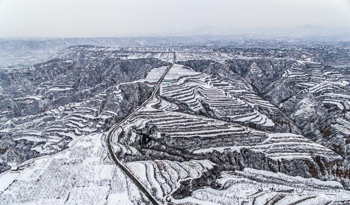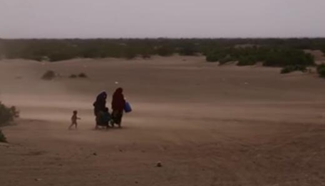ROME, Feb. 22 (Xinhua) -- Finding a way to feed the growing population will be among the most important challenges to the world's farmers, ranchers, and fishermen, the United Nations Food and Agriculture Organization (FAO) said in a report released Wednesday.
Noting that the world's population is expected to increase by a third between now and 2050, the report entitled "The Future of Food and Agriculture" examines the problem in depth.
The report identifies an array of challenges facing the mankind in feeding itself as the global population grows, ranging from climate change and diminishing natural resources to a lack of reliable institutions and economic inequality in some parts of the world.
It notes that the percentage of the world's population living in extreme poverty has diminished in recent decades, but adds, "expanding food production and economic growth have often come at a heavy cost."
In his introduction to the report, Jose Graziano da Silva, FAO's director-general, said the planet must work to avoid a dire fate.
"Global food security could be in jeopardy, due to mounting pressures on natural resources and to climate change, both of which threaten the sustainability of food systems at large," Graziano da Silva wrote. "Planetary boundaries may well be surpassed, if current trends continue."
Among the ten major challenges identified in the report, more than half directly or indirectly involves sustainability, including the need to implement smart agricultural methods, finding a workable level of tapping into natural resources, working toward the eradication of hunger, and reducing the impacts of and increasing adaptation to climate change.
But the core question behind the report is whether the world is capable of meeting the needs of a growing population -- with an expected increase in world population by 2.5 billion between now and 2050.
To meet such a challenge, "the planet's food systems are capable of producing enough food to do so, and in a sustainable way," the report said. "But unlocking that potential -- and ensuring that all of humanity benefits -- will require 'major transformations.'"
The report called for worldwide efforts to shift the planet to a more sustainable trajectory.
"The core challenge is to produce more with less, while preserving and enhancing the livelihoods of small-scale and family farmers, and ensuring access to food by the most vulnerable," the report said.












